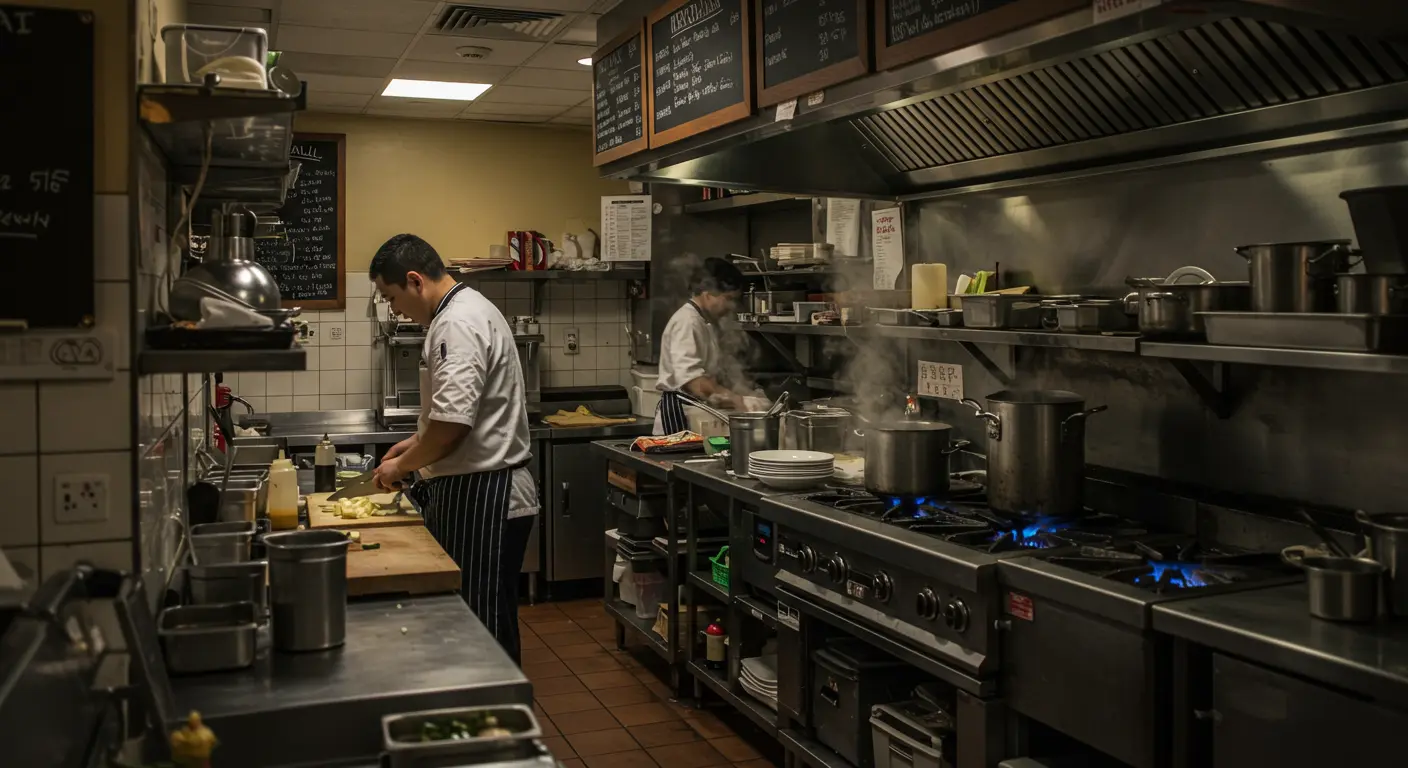Which Business Opportunity Involves Higher Start-Up Costs?
Understanding Start-Up Costs in Business Opportunities
Understanding a venture’s financial requirements forms the foundation of informed decision-making. Start-up costs fluctuate wildly across business landscapes—from modest investments of a few thousand dollars to staggering multi-million-dollar commitments. These initial expenses include everything from brick-and-mortar spaces and specialized equipment to regulatory licensing, initial inventory, and strategic marketing campaigns.
Capital-intensive ventures like restaurants or established franchises demand substantial upfront investments. Consider physical locations, franchise fees, commercial-grade equipment, and initial stock.
Online retail and consulting services, however, present far more accessible entry points. This difference highlights an important reality: your venture choice must harmonize with both available capital and personal risk appetite.
Business Opportunities with High Start-Up Costs
Certain business categories consistently demand hefty initial investments. While these create significant barriers to entry, they often yield substantial returns. Common examples include:
-
Franchises: Require significant capital for fees, royalties, and standardized operational costs, often ranging from $100,000 to over $1 million.
-
Manufacturing: Demands substantial investment in production facilities, specialized equipment, raw materials, and regulatory compliance.
-
Hotels and Resorts: Involve enormous costs for real estate, construction, furnishings, and staffing before generating revenue.
-
Healthcare: Businesses like clinics or senior living facilities require major spending on medical equipment, specialized buildings, and professional staff.
Opening a Restaurant – Costs and Considerations
Opening a restaurant is one of the most expensive business ventures to start. Financial commitments can span from $100,000 for a cozy neighborhood spot to several million for an upscale dining destination in a coveted location.
This large investment covers several essential expenses:
-
Commercial Space: $50,000 – $500,000 for leasing and renovation.
-
Kitchen Equipment: $75,000 – $150,000.
-
Initial Inventory & Supplies: $20,000 – $40,000.
-
Furniture & Decor: $20,000 – $200,000.
-
Point-of-Sale (POS) Systems: $5,000 – $20,000.
-
Licenses & Permits: $2,000 – $5,000.
-
Insurance: $2,000 – $10,000 annually.
-
Pre-opening Marketing: $10,000 – $25,000.
Beyond these upfront costs, smart owners should set aside 6–12 months of working capital. Why? Because cash flow can be unpredictable in those crucial early months. Success in this challenging industry depends on a solid business plan, adequate funding reserves, meticulous market research, a strategic location, and a concept that truly stands apart.
Starting an Online Retail Store – Cost Analysis
Launching an online retail store offers a much more accessible business opportunity. Initial investments typically range from several thousand dollars to approximately $50,000, depending on your ambitions and operational complexity. This lower cost compared to restaurants makes e-commerce an attractive option for capital-conscious entrepreneurs.
Primary expenses for an online retail business include:
-
Website & E-commerce Platform: $1,000 – $10,000.
-
Initial Inventory: $2,000 – $20,000.
-
Product Photography: $500 – $2,000.
-
Digital Marketing: $1,000 – $5,000 monthly.
-
Business Registration & Licenses: $500 – $1,000.
-
Shipping Supplies: $500 – $2,000.
Several variables influence these costs: your chosen business model (drop-shipping versus traditional inventory), product categories, and fulfillment strategies. Even in today’s competitive digital marketplace, success requires clear market positioning, compelling products, and savvy marketing execution.
Consulting Services – Low Start-Up Costs but High Potential
Consulting is one of the most affordable business opportunities to start. Start-up investments frequently range from a mere $1,000 to $10,000. This low cost makes consulting attractive to seasoned professionals with specialized knowledge who want to launch independent ventures without shouldering significant capital risk.
The primary costs for a consulting business include:
-
Business Registration & Licensing: $500 – $1,000.
-
Professional Website: $1,000 – $3,000.
-
Basic Marketing Materials: $500 – $2,000.
-
Professional Liability Insurance: $1,000 – $3,000 annually.
-
Minimal Office Equipment: If operating from home.
Success depends entirely on the founder’s expertise, professional reputation, and proven ability to deliver measurable results. Effective strategies include focusing closely on a defined niche, implement value-based pricing models, and develop scalable operational systems.
Factors Influencing Start-Up Costs
Several key factors cause the wide variation in start-up costs across industries. The fundamental nature of your business shapes capital requirements most significantly—physical product ventures typically require more investment than service-based or digital enterprises. Industry-specific demands like regulatory compliance, specialized equipment, and professional licensing can dramatically inflate initial expenses.
-
Business Model: Physical product ventures are typically more expensive than service-based or digital businesses.
-
Location: Prime urban real estate costs significantly more than suburban or rural options.
-
Scale and Scope: A small boutique operation requires less capital than a large-scale enterprise.
-
Industry Requirements: Regulations, specialized equipment, and licensing can add significant costs.
-
Inventory & Staffing: Retail, manufacturing, and service-intensive businesses have higher needs in these areas.
-
Franchise Specifics: Fees, training programs, and advertising packages vary widely by brand.
Evaluating Business Viability and Risk Tolerance
Start-up costs alone don’t tell the whole story. Entrepreneurs must evaluate opportunities through the dual lens of business viability and personal risk tolerance. High-cost ventures carry greater financial risk—money invested in physical assets is often difficult to recover when businesses stumble.
Assessing viability requires careful analysis of potential return on investment (ROI), timeline to profitability, industry profit margins, and market saturation levels. For franchise opportunities, dig deep into franchisee success rates, franchisor support quality, and local brand recognition.
Your personal risk tolerance is equally important. How comfortable are you with financial leverage? Can you weather inevitable early-stage challenges? Lower-cost opportunities provide a key advantage: they allow entrepreneurs to test concepts and refine strategies without catastrophic financial exposure.
Creating a Business Plan – Key Components
A well-written business plan provides the essential foundation for any venture—particularly those demanding substantial start-up investments. Essential components include:
The financial projections section needs special attention. It requires granular breakdowns of start-up costs, realistic sales forecasts, and comprehensive cash flow statements spanning 3–5 years. A well-constructed plan is essential for securing funding while serving as your operational roadmap to success.
Understanding Market Research for Business Success
Comprehensive market research is the foundation of business success, especially for capital-intensive ventures. It helps entrepreneurs confirm real demand and make informed decisions that significantly reduce operational risk.
Thorough research requires both primary methods—customer surveys, in-depth interviews—and secondary intelligence from industry reports and competitor analyses. This combined approach identifies market opportunities and improves strategic focus.
Research can pinpoint optimal retail locations, establish competitive pricing strategies, or refine a digital product’s user experience. For high-investment ventures, dedicating 3-5% of start-up costs to professional market research is a smart investment that can prevent costly strategic mistakes.





